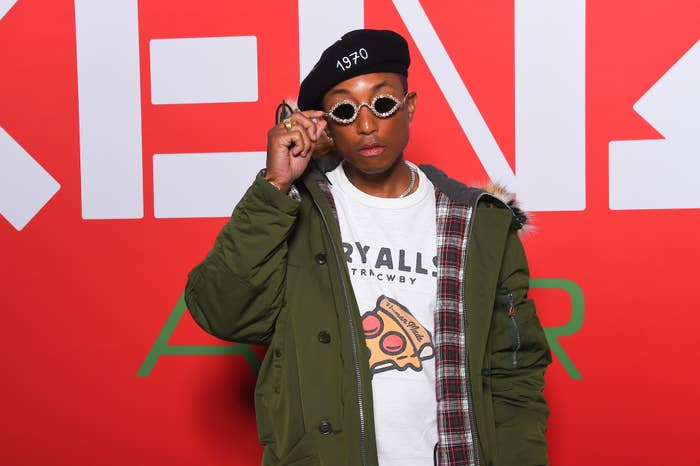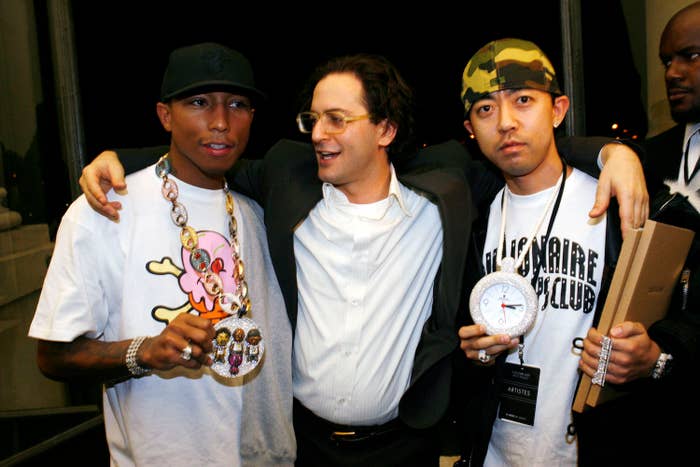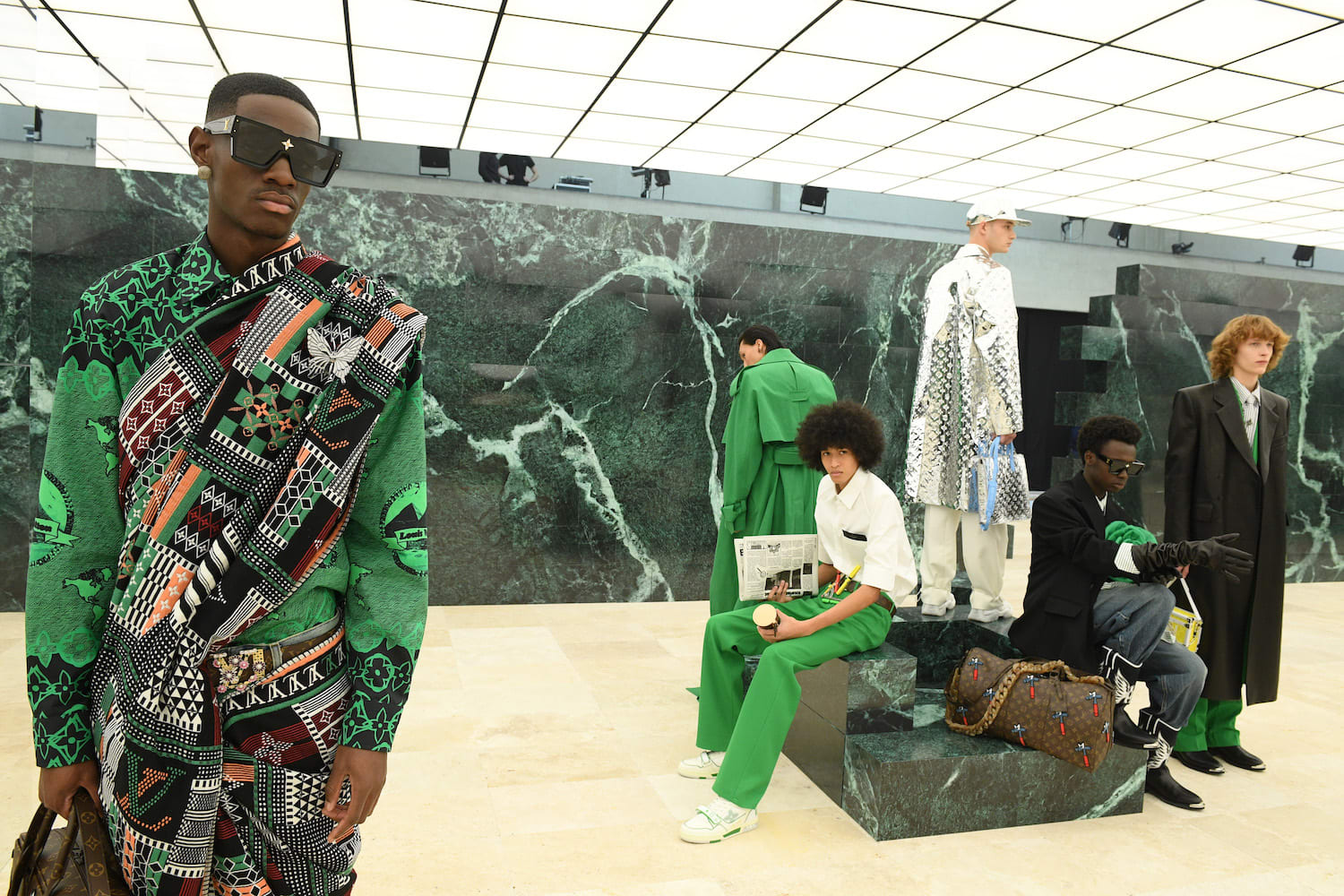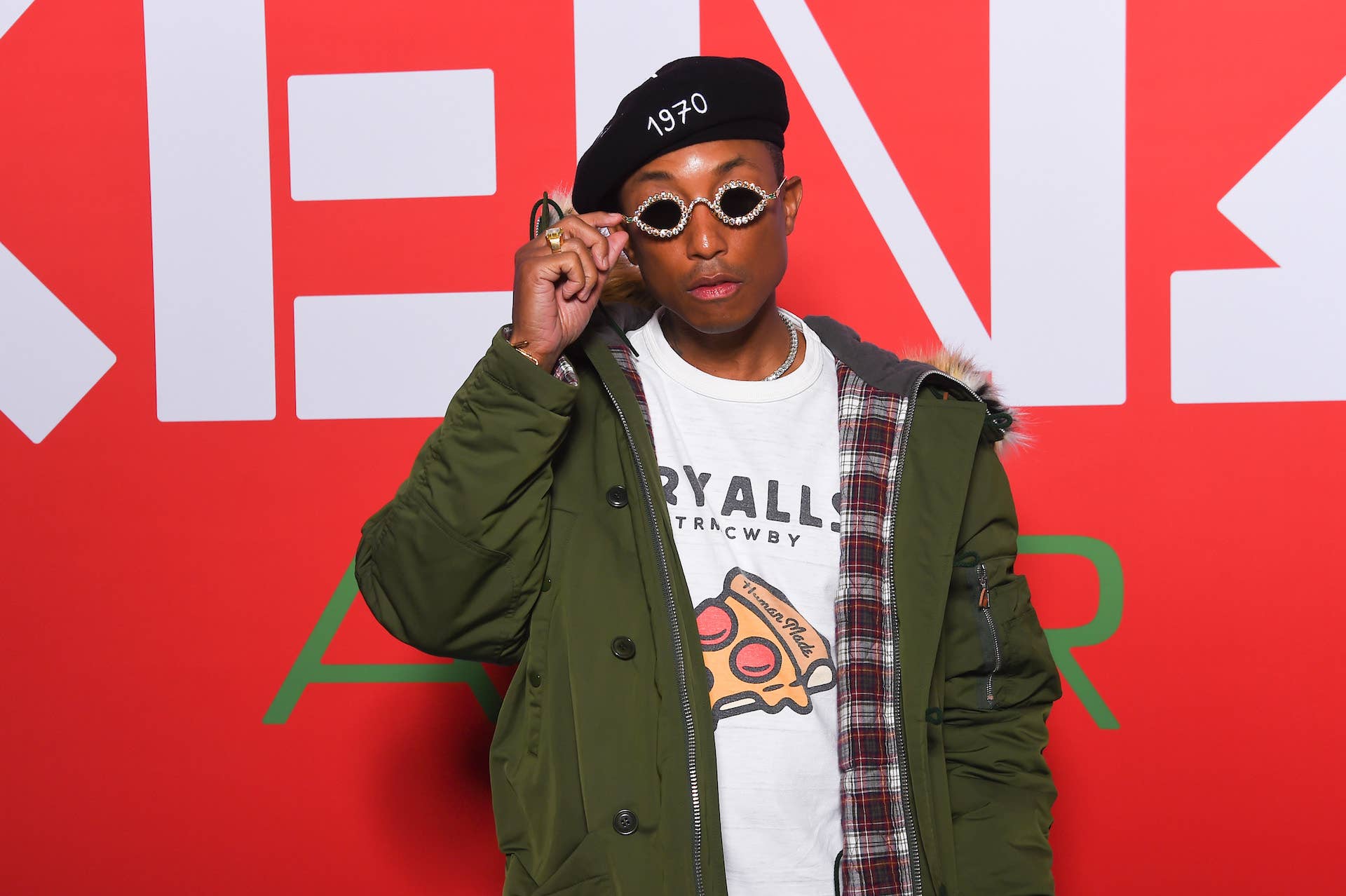
Louis Vuitton may have delivered the world’s biggest surprise on Valentine’s Day when the French luxury house unveiled that Pharrell Williams would become Louis Vuitton’s new creative director of menswear. It was another bolt of lightning sent down by a label known for making creative decisions that have produced both shock and awe within the fashion industry. Naturally, fans of Williams (and his celebrity friends) rejoiced that he would be filling the late-Virgil Abloh’s shoes. Williams’ appointment aptly arrives as hip-hop turns 50—finally, after years of seeing major fashion labels reference or take from hip-hop style, an elite fashion house gave one of rap’s most eclectic style icons a seat at the table. Many others, however, were perplexed that LVMH picked Williams over several other fashion designers who were also allegedly considered, including Martine Rose, Grace Wales Bonner, Telfar Clemens, and Colm Dillane of KidSuper.
Like Dapper Dan, Sean “Diddy” Combs, and Kanye West, Williams has long defined pop-culture’s understanding of hip-hop style. He broke the stereotypical conventions of hip-hop fashion by dressing like a skateboarder; he’s a global connector who personally linked with NIGO to usher in an era of Ura-Harajuku-inspired streetwear to the United States that dominated young adult fashion for a decade; his Y2K remixing of Slick Rick’s ostentatious jewelry was literally copy and pasted by rappers like Drake today. Although Williams’ Billionaire Boys Club label strayed far away from Yeezy’s fashion hoop dreams, the N.E.R.D. frontman is one of the few artists who could say they’ve already worked with luxury labels like Louis Vuitton, Chanel, Moncler, and Tiffany & Co. But is Williams’ appointment a true endorsement of the influence that hip-hop has over contemporary fashion today? Or, is it another flashy marketing ploy by LVMH informed by star power?

Without question, hip-hop stars have played an integral role in positioning Louis Vuitton as one of the world’s most recognized fashion labels today. Dapper Dan’s bootleg couture linked luxury house monograms to hip-hop greats like Rakim and LL Cool J a decade before Louis Vuitton hired Marc Jacobs to design its men’s and women’s collections in 1997. And during Jacobs’ own 16-year tenure at Louis Vuitton, he put together popular collaborations not just with artists like Takashi Murakami, but also with contemporary hip-hop superstars like Skateboard P himself. While Kim Jones’ menswear collections steered away from such star-studded team-ups, he built on Jacobs’ collaborative approach by embedding streetwear into the luxury space by merging Louis Vuitton with brands like Supreme—a label whose own designs are deeply indebted to hip-hop fashion and urban culture at large. After flirting with hip-hop for so long, Abloh officially engaged LV with the culture during his eight season arc as the creative director of menswear at Louis Vuitton. Pharrell’s appointment joins these two worlds in holy matrimony, with Louis Vuitton’s new CEO, Pietro Beccari, officiating his first marriage as pastor.
But one wonders if this was the fairy tale ending Abloh envisioned for the house. Although Abloh was a celeb-adjacent fashion designer, his collections were not crutched by his A-list status. While the pull he had with celebs created headlines for Louis Vuitton, that was not his end all be all as a designer. Yes, he normalized positioning celebrity friends like Kid Cudi or ASAP Nast as runway models. But he plotted these stars with nuance and made larger points on celebrating diversity within fashion through this approach. Yasiin Bey (Mos Def) performed during the LV Men’s Fall 2021 presentation, which was inspired by James Baldwin and connected a thread of Black poets that included Saul Williams and Kai-Isaiah Jamal; Abloh’s Spring 2022 collection, partly inspired by old kung fu movies, included an apt “Liquid Swords” performance by GZA of the Wu-Tang Clan. Abloh was less about social media buzz and more about tactfully spotlighting his adolescent hip-hop heroes to bring attention to larger narratives about Black art that have long been marginalized by the traditional fashion industry.
There’s a stark difference, though, between Abloh dubbing the pioneering Chicago hip-hop crew Dem Dare a “fashion house” when speaking on his own collaborative work with Reggieknow and Kim Jones’ Summer ‘22 Dior Men’s runway collection co-designed with Travis Scott—more or less a luxurious line of Scott’s Cactus Jack merch with little to nothing to say beyond a “Rest in Peace” knit sweater dedicated to the Dior-loving Pop Smoke. Splashing a music star onto the runway with no intention besides marketing toward their fanbase does little service to the brand’s wares or the cultures these labels suck blood from.
Of course, any designer with a successful label, such as LV Men’s runner-ups Grace Wales Bonner, Telfar Clemens, and Martine Rose, gets embraced by celebrities. Yet their vision isn’t dictated by which trendy star will don their clothing next. Instead, much like Abloh, they use fashion as a vehicle to tell stories they want told. Rose’s garments are inspired by the South London rave scene she grew up with in the ‘90s. Wales Bonner pushes back against Britain’s colonial histories by producing collections informed by traditional Saville Row tailoring but inspired by African royalty. And while Clemens might be most recognized within pop culture for selling his viral leather tote bags, his work—from spotlighting the humble White Castle worker flipping burgers in Harlem to the Rainbow clothing boutiques that shaped style for more New Yorkers than a Louis Vuitton flagship on Fifth Avenue—is true to the democratization of fashion that Abloh strived for.

So shouldn’t these other, more purely fashion-minded creatives, who’ve toiled for years to convey their specific cultural messages to an audience wider than their own fans, be given the opportunity to tell those stories on Louis Vuitton’s global stage? It’s undeniable that Pharrell has made an indelible impact on contemporary street style. But within the past two decades, he’s become much more than just a stylish producer from Virginia Beach. Today, he’s a multi-hyphenate millionaire entrepreneur who runs his own creative think tank “i am OTHER,” his popular “Something in the Water” music festival, his Humanrace Adidas sneaker and clothing line, his Humanrace skincare label, his clothing brands Billionaire Boys Club and Ice Cream, his OTHERtone podcast, his Black Ambition and Yellow charities, and more. Pharrell already has the public’s attention and can disseminate whatever thought he has on these platforms already granted to him as a celeb. Meanwhile, many fashion designers will never have such a privilege in their lifetime. One can only hope that Williams will approach his new role by actually taking risks like Abloh, spotlighting those on the margins, and uplifting other voices besides his own. The world will have to wait until his debut show in June to see.


